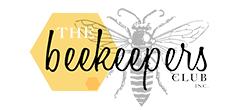Contact usMeeting Address: NewHope Community Centre: 3-7 Springfield Rd, Blackburn North 3130 Email: secretary@beekeepers.org.au |
Powered by Wild Apricot Membership Software
Contact usMeeting Address: NewHope Community Centre: 3-7 Springfield Rd, Blackburn North 3130 Email: secretary@beekeepers.org.au |
